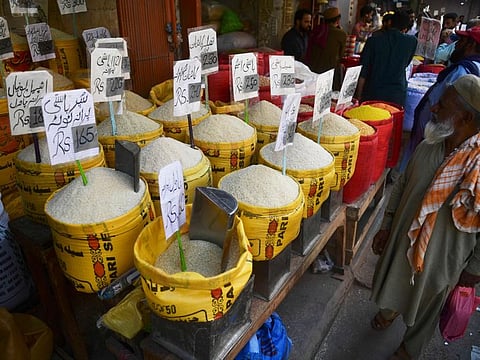Pakistan finance bill proposes Rs170 billion new taxes to secure IMF loan
Measures part of efforts to fulfill conditions required to unlock latest IMF tranche

Islamabad: Pakistan’s finance minister laid a supplementary finance bill before parliament on Wednesday, proposing new taxes to raise 170 billion rupees ($640 million) in extra revenue during the current fiscal year ending July.
The new taxes were proposed after an increase in gas and electricity prices. Officials say that the measures are part of the efforts to fulfill conditions required to unlock the latest tranche of a bailout programme from the International Monetary Fund (IMF). The IMF had delayed a crucial $1.1 billion tranche of the $6 billion deal signed in 2019 due to Pakistan’s failure to meet the agreed-upon conditions.
Major taxes proposed
The proposed finance bill includes raising the general sales tax (GST) from 17 per cent to 18 per cent, increasing the GST on luxury items to 25 per cent, taxes on first and business-class air tickets, and increasing federal excise duty on cigarettes, aerated and sugary drinks, and cement. • Sales taxes hiked from 17 per cent to 18 per cent • Tax on luxury items to increase from 17 per cent to 25 per cent • New taxes of 20 per cent of the airfare or Rs50,000, whichever is higher, on first class and business class air tickets • 10 per cent adjustable withholding advance tax on the bills of wedding halls • Increased taxes on cigarettes and sugary drinks • New taxes on cement from Rs1.5 per kg to Rs2 per kg
To reduce the inflationary impact of the “mini budget”, the government proposed increasing handouts under the social protection programme, Benazir Income Support Programme (BISP), to a total of Rs400 billion from 360 billion.
The bill proposed the exemption from the GST hike in daily food items such as wheat, rice, milk, and meat, to reduce the impact of rising inflation.
The government says it is making all efforts “to put a minimum burden on the low-income segments”.
Reaction
The bill was presented in the parliament in the absence of the main opposition members as Imran Khan’s party has been boycotting assemblies and many of his party legislators have resigned in protest following Khan’s ouster last year.
Lawmaker Noor Alam Khan was among the few who criticised the new taxes and said taxes will further “burden the masses with inflation”.
He also said: “Pakistan was a country where there were only taxes and taxes, and no benefits”. However, the government insists that the bill is necessary to secure the IMF loan and stabilise the country’s economy, which has been hit hard by a worsening economic crisis, rising inflation, and political instability.
Finance Minister Dar said that the government is committed to controlling and reducing the fiscal deficit and current account deficit, which he said were the two major crises plaguing the economy.
“Through the IMF programme, our foreign exchange reserves will increase, the rupee will stabilise, our exports and remittances will also improve and issues regarding the opening of LCs will also cease.”
The Shehbaz Sharif-led government had to go to parliament after President Arif Alvi advised to take parliament into confidence instead of using an ordinance to introduce the Rs170 billion in new taxes. The cabinet then quickly approved the tax amendment bill to present it in both houses of parliament on the same day.
Will taxes and IMF loan solve the crisis?
Some experts disapproved of burdening the existing taxpayers with indirect taxation instead of improving tax collection from sectors such as retailers and real estate. A senior economist with Moody’s Analytics said that inflation in Pakistan could average 33 per cent in the first half of 2023 and that relying solely on an IMF bailout may not be enough to revive Pakistan’s economy. “Our view is that an IMF bailout alone isn’t going to be enough to get the economy back on track. What the economy really needs is persistent and sound economic management,” said senior economist Katrina Ell.
Sign up for the Daily Briefing
Get the latest news and updates straight to your inbox



